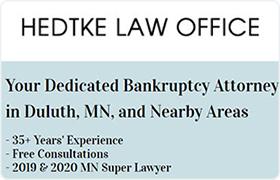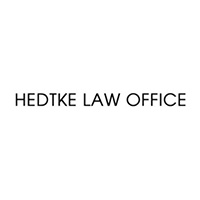 Britt Bankruptcy Lawyers, Minnesota
Britt Bankruptcy Lawyers, Minnesota
Sponsored Law Firm
-
 x
x

Click For More Info:
-
Hedtke Law Office
1217 E. 1St Street Duluth, MN 55805» view mapBankruptcy & Debt Sensible Debt Solutions
Hedtke Law Office is here to answer your questions and guide you through the bankruptcy process. We work to help you reduce your debt while keeping your personal property.
800-887-8940
Includes: Bankruptcy Litigation, Commercial Bankruptcy, Consumer Bankruptcy, Dissolution
Not enough matches for Britt Bankruptcy lawyer.
Below are all Britt lawyers.
Lawyers
1-10 of 12 matches
Litigation, Labor Law, Wrongful Death, Personal Injury, Car Accident
Employee Rights, Criminal, Social Security, Divorce & Family Law



 John Hedtke Duluth, MN
John Hedtke Duluth, MN Practice AreasExpertise
Practice AreasExpertise